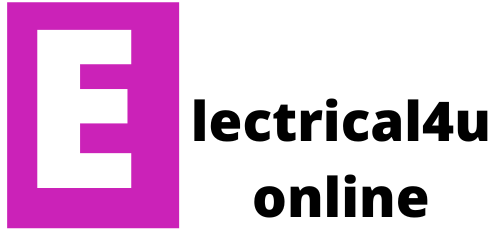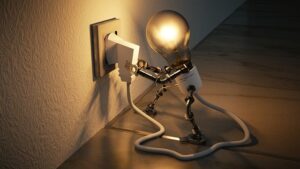Maintaining electrical systems is an essential part of ensuring energy efficiency. Proper electrical maintenance can improve the performance and lifespan of electrical systems, as well as reduce energy waste and costs.
In this article, we will explore the impact of electrical maintenance on energy efficiency.
Table of Contents
What does energy efficiency mean?
Energy efficiency refers to the process of using energy in a way that maximizes its output while minimizing its input.
In the context of electrical energy, energy efficiency refers to the practice of using electrical energy in a way that minimizes waste and maximizes output. This can be achieved through various means such as regular maintenance, using more efficient appliances and equipment, implementing energy-saving practices, and improving the design and operation of electrical systems.
For example, using energy-efficient light bulbs can reduce the amount of electricity needed to light a room, while upgrading to more energy-efficient HVAC systems can reduce the amount of electricity needed to cool or heat a building.
By improving energy efficiency, we can reduce energy waste, save money on energy bills, and help to reduce the environmental impact of energy use.
Understanding Electrical Maintenance
Electrical maintenance involves the inspection, testing, and repair of electrical systems, equipment, and components.
The purpose of electrical maintenance is to prevent system failures, ensure safety, and optimize performance.
Regular electrical maintenance is crucial in identifying potential problems before they escalate and cause damage.
Benefits of Electrical Maintenance
In summary, regular maintenance can increase energy efficiency by optimizing system performance, identifying and addressing problems early, improving safety, and extending equipment life.
By implementing regular maintenance practices, businesses and individuals can reduce energy waste and costs, improve safety, and help to protect the environment.
The following are some of the benefits of regular electrical maintenance:
- Improved performance: Regular maintenance ensures that electrical systems are operating at peak performance, reducing the risk of breakdowns, malfunctions, and system failures.
- Longer lifespan: Electrical systems that are properly maintained have a longer lifespan, reducing the need for replacement and the associated costs.
- Reduced energy consumption: Properly maintained electrical systems are more efficient, reducing energy waste and costs.
- Enhanced safety: Electrical maintenance helps identify potential hazards and ensures that systems meet safety standards, reducing the risk of accidents and injuries.
Electrical Maintenance Techniques for Energy Efficiency
The following are some of the electrical maintenance techniques that can help improve energy efficiency:
- Cleaning: Dust and debris can accumulate on electrical components, reducing their efficiency. Regular cleaning of electrical components can improve energy efficiency by removing this buildup.
- Tightening connections: Loose electrical connections can result in electrical arcing, which wastes energy and can damage equipment. Tightening connections can reduce energy waste and improve system performance.
- Lubrication: Electrical systems with moving parts require proper lubrication to operate efficiently. Lubricating these components reduces friction, leading to improved performance and reduced energy consumption.
- Upgrades: Upgrading outdated electrical systems, components, and equipment can improve energy efficiency. Modern systems are designed to be more energy-efficient, reducing energy waste and costs.
Want to take your knowledge to the next level? Click here to read my comprehensive article Electrical Maintenance: Ensuring Safe and Efficient Electrical Systems.
The Importance of Regular Maintenance
Regular maintenance is crucial in ensuring energy efficiency. It allows for the identification of potential problems before they escalate, reducing energy waste and costs.
In addition, regular maintenance ensures that systems are operating at peak performance, reducing the risk of system failures and downtime.
Understanding Poor Maintenance
Poor maintenance is a lack of proper inspection, testing, and repair of electrical systems, equipment, and components.
Failure to maintain electrical systems can result in inefficiencies, malfunctions, system failures, and safety hazards.
Neglecting regular maintenance can lead to higher energy consumption and costs, reduced performance, and even system failures.
The Negative Effects of Poor Maintenance on Energy Efficiency
The following are some of the negative effects of poor maintenance on energy efficiency:
Energy waste:
Poor maintenance can result in energy waste, as electrical systems may operate inefficiently or require more energy to perform.
Poor maintenance can result in energy waste in several ways.
- First, poorly maintained electrical systems may not operate at peak efficiency, leading to more energy consumption than necessary. For example, a dirty or clogged air filter in an HVAC system can reduce its airflow, causing the system to work harder and consume more energy to maintain the desired temperature.
- Second, electrical systems that are not properly maintained may require more energy to perform their intended function. For example, a motor that has not been lubricated or has worn-out bearings may require more energy to spin than it would if it were properly maintained. This increased energy consumption can result in higher energy bills and reduced energy efficiency.
- Third, poorly maintained electrical systems may have components that are not working as intended, leading to energy waste. For example, a faulty thermostat may not accurately measure the temperature in a building, causing the HVAC system to operate inefficiently and consume more energy than necessary.
- Finally, electrical systems that are not maintained can develop leaks or other issues that can waste energy. For example, a compressed air system with a leak will require the system to work harder to maintain the desired pressure, resulting in more energy consumption.
Poor maintenance can result in energy waste by reducing system efficiency, requiring more energy to perform, having faulty components, and developing leaks or other issues.
By properly maintaining electrical systems, energy waste can be minimized, leading to improved energy efficiency and lower energy costs.
Increased costs:
Energy waste caused by poor maintenance can result in higher energy bills, reducing cost savings and profits.
Reduced performance:
Poorly maintained electrical systems may not perform at peak efficiency, reducing productivity and increasing downtime.
Safety hazards:
Neglected electrical systems can pose safety hazards, increasing the risk of accidents and injuries.
System failures: Lack of maintenance can lead to system failures, requiring costly repairs or replacements.
Read my in-depth article about Electrical transformer failure, for more information.
Conclusion
In conclusion, electrical maintenance plays a crucial role in ensuring energy efficiency. Proper maintenance of electrical systems can improve performance, reduce energy waste and costs, and enhance safety.
Regular maintenance, including cleaning, tightening connections, lubrication, and upgrades, is essential in maintaining energy efficiency.
By implementing regular maintenance practices, businesses and individuals can enjoy the benefits of improved energy efficiency and reduced costs.
Install my Free Android App on Google Play:
Electrical Cables Most Common Tables
And, my Electrical Calculations App “”
Discover more great content by subscribing to My channel
Looking to stay ahead of the game in the world of electrical engineering? Subscribe to my YouTube channel and gain access to exclusive content you won’t find anywhere else!
The staff I recommend
(Amazon Affiliate Links to products I believe are high quality):
- Economy 120 Volt/60Hz AC Power Source – Step-Down Voltage & Frequency Converters 1800W
- UNI-T Digital Multimeter Tester UT139C
- 50-Amp Extension Cord for RV “100ft”
- Voltage Stabilizer 110/220v
- Hair Dryer “best selling“
- TOSHIBA EM131A5C-BS Countertop Microwave Ovens
Disclaimer: This contains affiliate links to Amazon products. I may earn a commission for purchases made through these links.


